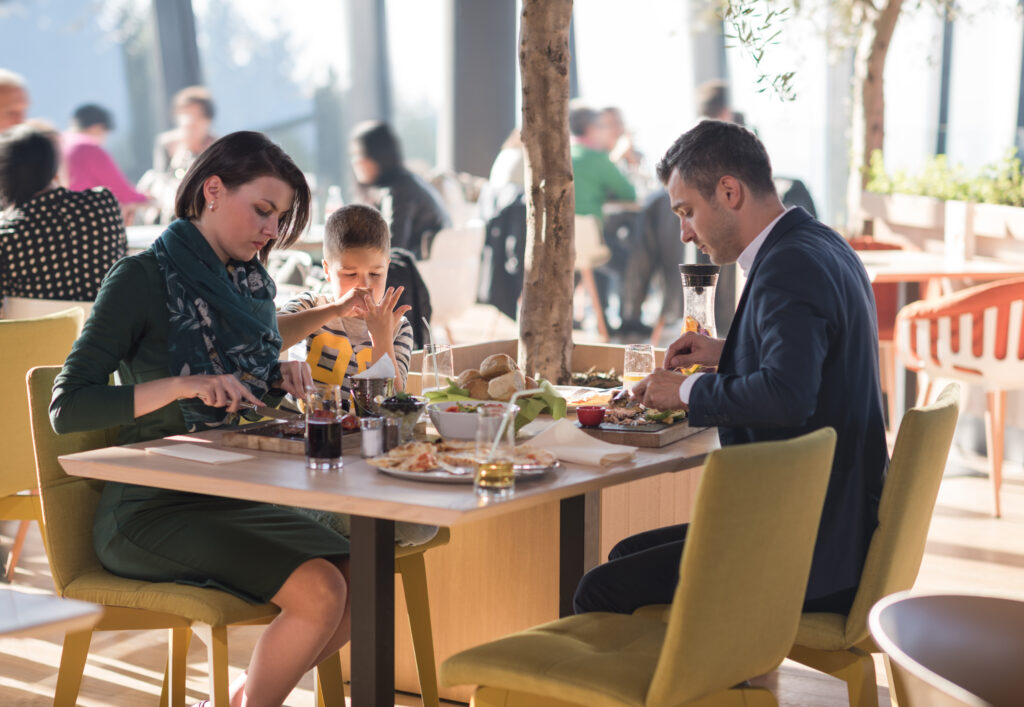
Today we’re going to talk about restaurant insurance in New York, and in New York City. When I say restaurants, I’m broadly speaking about a lot of different food service establishments, since most of these rules or strategies are going to apply to white linen fine dining to fast take out, to family-style, cafes, bagel shops, pizzerias, and a lot of different types of food businesses in New York and NYC.
To start off with, I understand that if you own a restaurant or foodservice business you probably hate business insurance. You don’t really understand it, the premiums are high, and no one has really explained it to you, so it’s frustrating. I get it, and what I’m going to try and do here is give you the top 7 bullet points you should consider if you’re buying restaurant insurance for the first time, or you’re about to renew or shop your insurance for the 15th time or more.
The other big thing I want to get to is that there’s a difference between cheap and cost-effective. I have reviewed too many restaurant insurance packages that unnecessarily skimp on certain limits of coverage that put the business owner in jeopardy to save literally just a few bucks. In my mind that makes no sense. You put a lot of blood, sweat and tears into your business and underinsuring the contents in your restaurant to save 150 bucks doesn’t make a lot of sense. If you ever had that fire claim which damages your eatery, you’ll really be glad that you spent that extra $150 to be fully reimbursed instead of having to dig into your pocket to cover a $30,000 shortfall.
This is not to say I’m insensitive to how thin the margins are in your business; I just want to give you all the information I can so you make a more informed decision. Like Sy Sims used to say, “an educated consumer is our best customer!”
Okay, with that out of the way, let’s jump into the first policy and what to look for in your restaurant insurance program and that’s a business owners or BOP policy.
A BOP policy which is short for business owners policy is a convenient sort of all-in-one policy that combines most of the property and liability coverages your foodservice business needs. My suggestions for getting the BOP right are these points:
- Property limits – as I mentioned earlier, having sufficient property limits to cover the 100% replacement cost of your building – if you own it – and your contents is really important. Don’t skimp here, it doesn’t make sense because the dollar savings by underinsuring your property isn’t worth it. Also, don’t forget that the money you spent on improving the interior of your establishment (if you rent) should be covered. In some restaurants with ornate millwork, crown moldings, murals, and other fancy paintwork the value of what we call tenants improvements and betterments can add up so make sure that the cost to re-do those upgrades is included in your BOP.
- Liability limits – here, we often see the general liability limit stuck at $1M for the past 25 or more years – but you know what, most in BOP policies you can upgrade the liability limits for less than a hundred bucks in many cases. Liability insurance protects you from those slip and fall type claims, or if you’re sued if someone gets sick at your establishment from contaminated food. I know – it’s something you don’t want to think about, but it does happen. In my mind doubling your liability protection for a few bucks makes a lot of sense, but a lot of brokers don’t even offer or make that suggestion.
- Business income insurance – we used to call this business interruption insurance and in most bop policies you don’t need to pick a limit of protection which is great. Instead, the policy provides your actual loss sustained for up to 12 months, and what that means is that the policy will pay for your ongoing business expenses and lost profits if your business is forced to close due to a covered loss, like a fire. Something that a lot of insurance brokers don’t talk about is the waiting period or time deductible on business income claims – most standard policies have a 72-hour waiting period or deductible, but some will provide a zero-wait time or deductible. Imagine if you had a claim occur over a weekend and was quickly remediated – how would the loss of income from Friday, Saturday, and Sunday affect your cash flow? In my opinion, this is an option worth exploring. If you’re not insured on a BOP policy because you’re a larger establishment and have a commercial package policy that requires you to state a limit on the policy, this is where a lot of policies fall short. My suggestion is that you don’t GUESS what limit you need. Take the time to complete a business income worksheet to arrive at a proper limit that will cover you for your lost profits, continuing expenses and give you protection to ramp up your business during recovery. If you have a stated limit of business income insurance now and your agent hasn’t done a business income worksheet with you – you might be doing business with the wrong agency.
- Moving onto the last point I want to make about the BOP policy is spoilage coverage. Spoilage is something that’s often incorrect on a restaurant policy form. You have to make sure you have a sufficient limit and that you’re protected from both off-premises power failure AND mechanical breakdown type claims.
Moving onto the next policy, let’s talk about liquor legal liability.
A lot of insurance companies can include liquor legal in the BOP or package policy but some don’t, so I want to give this some special attention.
If you serve or sell liquor including beer and wine, you need liquor legal liability, without it any claim that arises from a liquor-related cause is going to be excluded under your general liability insurance. Liquor coverage is usually rated on the receipts your food establishment has for the year. Like other liability coverages, you should have high limits of protection for liquor liability – meaning at least $1M.
Now, I’ve had some restaurant owners say to me that they don’t have a bar, or that their bar service is very well managed, their bartenders have attended all the classes to recognize when someone may be nearing over-consumption and cuts them off and that they’ve never had a drunk patron so having high limits is unnecessary.
That restauranteur can be perfectly right in their assessment of liquor liability risk – unfortunately, if that well-behaved patron leaves that restaurant and goes to another bar, or a couple of other bars and become intoxicated and then gets in a car and kills someone, the well-managed restaurant will get dragged into a lawsuit because the survivors of the person killed are going to investigate where that drunk driver was and every establishment they visited will be pulled into a multi-million dollar lawsuit.
Don’t get me wrong. Having a well-trained bar staff is critical – but even the best establishments need high-limit liquor protection.
The good news is that several insurers who include liquor liability in their BOP policy can also include liquor in their umbrella policy, and that brings us to the next coverage part.
Umbrella Liability

An umbrella policy provides excess or extra liability protection over and above the other liability insurance forms you have, such as general liability, liquor liability, and auto liability. Usually, a One Million dollar limit of umbrella coverage is purchased, but higher limits are available in million-dollar increments.
My big suggestion here is to make sure you look at the schedule of underlying policies because if one of your primary policies – say your liquor policy – isn’t listed on this schedule, then the umbrella will not pick up extra coverage in the event of a liquor claim.
If you own a restaurant or food establishment in Manhattan it’s not uncommon for the landlord to be demanding at least $5M in umbrella limits. I get it, it can be expensive, but there’s really no way around complying with a landlord’s coverage requirements.
Last coverage part I want to talk about that I don’t see in a lot of food service policies is Cyber Insurance
I don’t mean an endorsement to your BOP policy that provides minimal cyber protection. Restaurants need a full-blown cyber policy to provide the broadest protection possible against the various risks and threats that cyber criminals and hackers are throwing at eateries every day. The biggest cyber risk in hospitality is ransomware. Ransomware can shut down everything in your network – that includes your POS system, your office computers, your reservation systems, etc.
When those systems go down, so does your cash flow. Cyber insurance not only pays for your lost income, but also helps you restore your systems, and pays the extortion demands to bring systems back online.
I could go on and on about cyber risks and how the hospitality industry is being particularly hard hit by cyber criminals, but I think you get it.
Last couple of points on restaurant and food establishment insurance I want to make:
- We represent the top insurance companies hot and heavy wanting to write restaurants and foodservice businesses in NY – Travelers, Nationwide, Utica First, Guard, and several others.
- Some of these insurers will write the general liability coverage with no audits. For restaurants that are growing rapidly or absolutely hate audits, this is a nice feature.
Here’s the bottom line – you’ve invested a lot of time, money, and effort into your establishment. Protecting it correctly doesn’t need to be complicated, expensive, or difficult. If you’re frustrated or unsure your insurance protection is right, then we should chat. My goal is to make insurance less of a hassle and to be accurate and affordable.
Thanks for reading this rather long post! I hope you found it informative. My name is Gordon Coyle and if you need help on your restaurant or foodservice business, I hope you’ll give me a call or drop me an email. To get started, just click the button below. Thanks!

